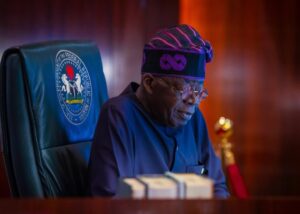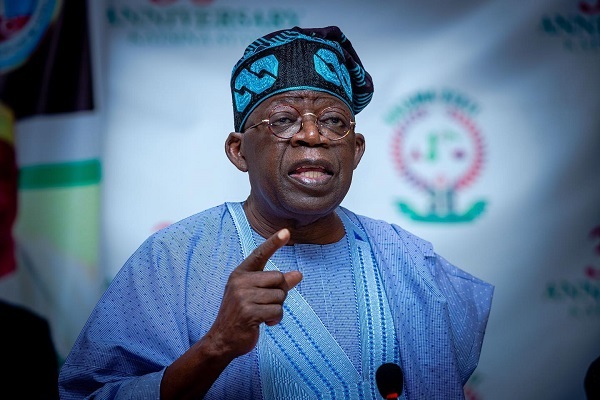In a heartfelt address, President Bola Tinubu revealed the difficult choice he made to eliminate fuel subsidies and unify foreign exchange rates, citing their detrimental effects on Nigeria’s economic growth and development.
During a national broadcast on Sunday, discussing the widespread protests occurring across the nation, Tinubu highlighted that for many years, Nigeria’s economy has struggled due to misalignment and inefficiencies that stifled progress. “Over a year ago, we reached a critical juncture where relying on temporary fixes for long-standing issues was no longer sustainable for our current and future generations,” he stated.
He elaborated on how the removal of fuel subsidies and the streamlining of foreign exchange systems were aimed at curbing the profits of smugglers and those exploiting the situation for personal gain. Tinubu explained, “This step was essential to prevent the undue benefits that were being extended to neighboring countries at the expense of our own citizens, leaving our economy vulnerable.”
The president acknowledged the gravity of his decisions, asserting, “I take full responsibility for these changes. However, my commitment to providing effective and responsible governance remains unwavering.”
Over the past 14 months, Tinubu’s administration has made considerable progress in laying a robust economic foundation that promises a prosperous future for Nigerians.

“On the fiscal front, we have more than doubled government revenues, reaching over N9.1 trillion in the first half of 2024 compared to the same period last year,” he noted, attributing this success to efforts aimed at enhancing efficiency and creatively mobilizing resources without burdening the populace.
“Productivity in the non-oil sector is gradually on the rise, seizing opportunities that our current economic climate provides,” he added.
Furthermore, he pointed out that his government has successfully reduced the proportion of revenue spent on debt servicing from 97% to 68%, while also settling legitimate foreign exchange obligations amounting to about $5 billion, which has allowed for greater financial flexibility to invest in essential social services like education and healthcare.
Tinubu also announced record allocations to state and local governments from the Federation Account, marking significant historical financial support.
In addition to fiscal reforms, the president outlined various infrastructure initiatives aimed at revitalizing the nation. Projects such as the Lagos-Calabar Coastal Highway and Sokoto-Badagry Highway are expected to connect 16 states, generating thousands of jobs and enhancing economic activity through trade and tourism.
“Our oil and gas sector, once in decline, is now witnessing a revival due to the reforms initiated in May 2024,” he said, revealing that oil production has surged to 1.61 million barrels per day, with renewed interest from investors leading to over half a billion dollars in new Foreign Direct Investments.
Acknowledging Nigeria’s previous over-reliance on petrol, Tinubu shared plans to harness the country’s gas resources more effectively. He announced the launch of the Compressed Natural Gas (CNG) Initiative aimed at reducing transportation costs and alleviating the financial burden caused by imported fuels.
“This initiative is projected to save us over N2 trillion monthly and redirect those funds into healthcare and education investments,” he explained, indicating that the government would distribute affordable conversion kits to commercial vehicles that dominate fuel consumption.
As the distribution of these conversion kits and the establishment of conversion centers commence, Tinubu expressed confidence that the CNG initiative would lead to a significant reduction in transportation costs—by approximately 60%—and help mitigate inflationary pressures in the economy.




